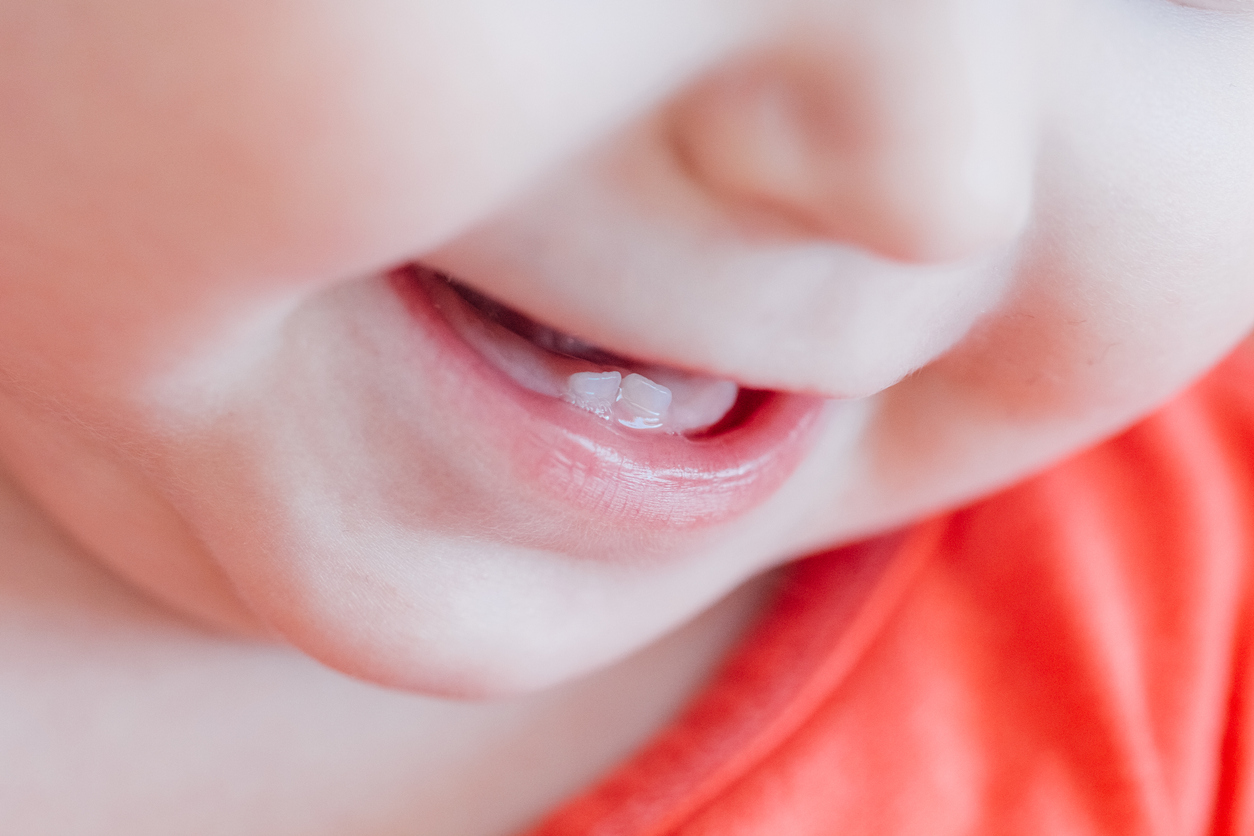Teething is a normal part of an infant’s life. This process of developing teeth can be quite painful for them and can become a source of great discomfort. Relief will eventually come with time, but there are also other ways to provide immediate relief. Let’s dive into baby teeth order, causes of pain, and some remedies you can try to help the discomfort.
Which Teeth Are Most Painful?
The tooth that causes the most pain for a child really just depends on the situation or child. Molars tend to be very painful because they’re much bigger than other teeth. More often than not, it’s the first tooth or teeth that come in which are very painful for a child. This is because it’s the first one causing this new and unfamiliar feeling for the child. The first teeth to come in are usually the bottom two front teeth. After the child has gotten used to the feeling of teeth coming in, they adapt to the painful feeling and are able to handle it a little better.
Baby Teeth Order
Baby teeth order can vary from child to child, but there’s usually a standard order that happens for most: the two central incisors first, then the central and lateral incisors or the four upper teeth, the molars, and then the canines. The second molars arrive around age 2. However, as it was stated, this varies for every child. Sometimes teeth can come in suddenly in groups.
Symptoms of Teething
The effects of teething usually occur before any teeth actually appear. Oftentimes children may develop puffy, red gums, have a decrease in appetite, and a little more irritable. They also sometimes drool a lot or can develop a fever. You can also tell if a baby is teething by the way they try to comfort themselves. They will often put their hands on or in their mouths, applying pressure to the gums to get some relief.
Remedies for Relief
Some ways to provide relief for your child while they’re teething is to massage the gums for them. You can do this with a clean finger or clean washcloth. A cold, wet washcloth provides even more relief, just as it does on other parts of our body. It also helps to reduce inflammation. At first, the child may be upset by the massaging because it’s a new sensation, but eventually, they relax into it.
Having something cool for your child to chew on is another way to provide relief. Teething rings are a great option and some are meant to be put in the fridge or freezer to provide added relief. You can check out some options and order them online here. Other hard objects will work as well, but make sure to disinfect them and that they aren’t small enough to choke on. Most babies like to chew on a hairbrush.
At times, teething may prevent children from sleeping so, when necessary, you can also supply your child with ibuprofen. However, make sure the medicine is infant approved — as these doses are made specifically to be appropriate for children.
Your child may also need a little extra love and affection at this time. They may be crankier than usual. Give them extra hugs and kisses and help relieve their pain as best as you can.
It’s also a good idea to make sure they’re developing their teeth as normally as possible. You may want to schedule a check-up with a pediatric dentist to make sure there are no complications and that everything is coming in just as it should.
If you’re searching for the proper dental care for your child, contact your Upland dentist today to schedule an appointment. When it comes to your child’s baby teeth order, it’s always better to be safe than sorry. Give us a call at 909-451-8300 or visit our website today.

